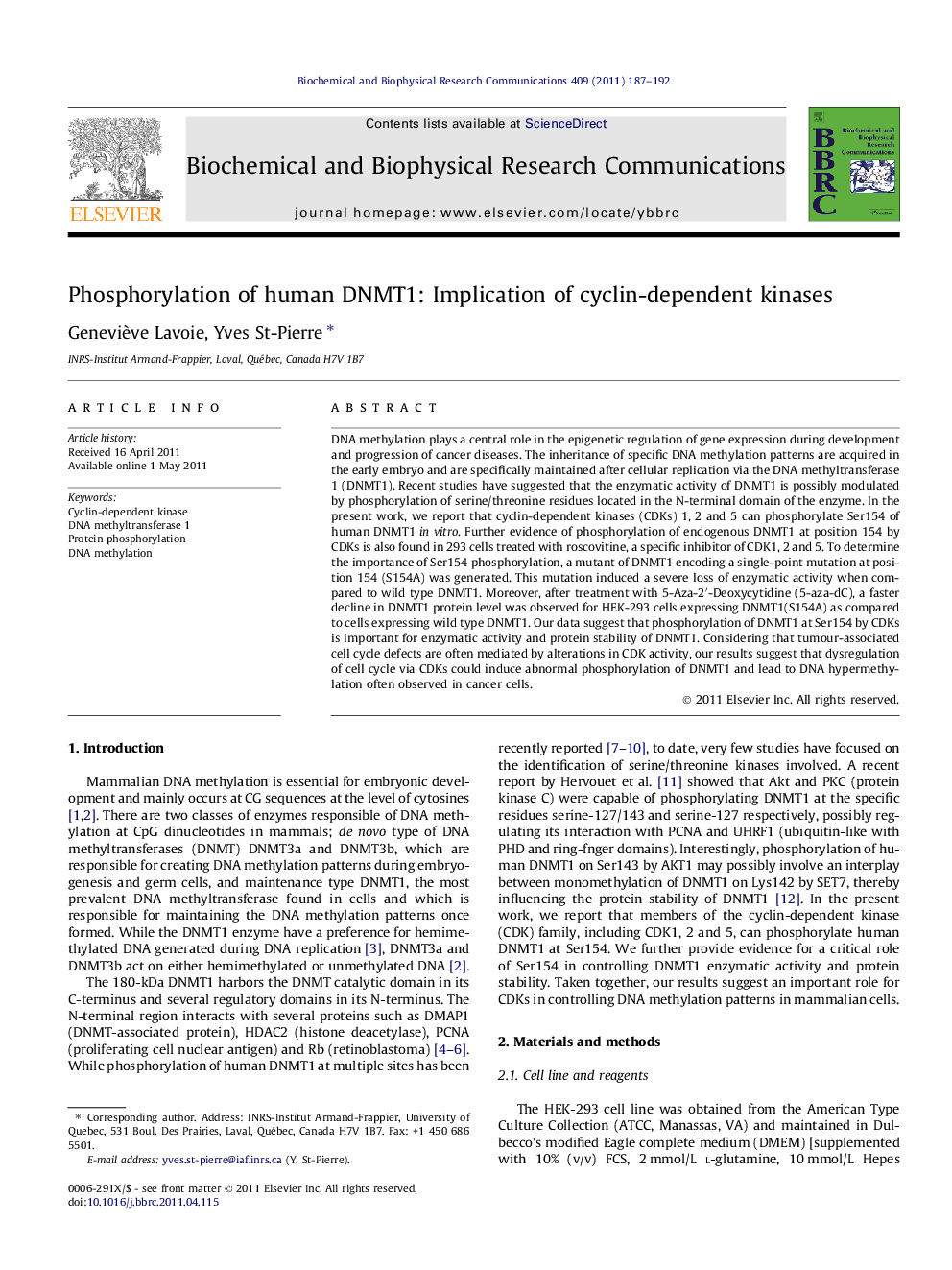| Article ID | Journal | Published Year | Pages | File Type |
|---|---|---|---|---|
| 1930439 | Biochemical and Biophysical Research Communications | 2011 | 6 Pages |
DNA methylation plays a central role in the epigenetic regulation of gene expression during development and progression of cancer diseases. The inheritance of specific DNA methylation patterns are acquired in the early embryo and are specifically maintained after cellular replication via the DNA methyltransferase 1 (DNMT1). Recent studies have suggested that the enzymatic activity of DNMT1 is possibly modulated by phosphorylation of serine/threonine residues located in the N-terminal domain of the enzyme. In the present work, we report that cyclin-dependent kinases (CDKs) 1, 2 and 5 can phosphorylate Ser154 of human DNMT1 in vitro. Further evidence of phosphorylation of endogenous DNMT1 at position 154 by CDKs is also found in 293 cells treated with roscovitine, a specific inhibitor of CDK1, 2 and 5. To determine the importance of Ser154 phosphorylation, a mutant of DNMT1 encoding a single-point mutation at position 154 (S154A) was generated. This mutation induced a severe loss of enzymatic activity when compared to wild type DNMT1. Moreover, after treatment with 5-Aza-2′-Deoxycytidine (5-aza-dC), a faster decline in DNMT1 protein level was observed for HEK-293 cells expressing DNMT1(S154A) as compared to cells expressing wild type DNMT1. Our data suggest that phosphorylation of DNMT1 at Ser154 by CDKs is important for enzymatic activity and protein stability of DNMT1. Considering that tumour-associated cell cycle defects are often mediated by alterations in CDK activity, our results suggest that dysregulation of cell cycle via CDKs could induce abnormal phosphorylation of DNMT1 and lead to DNA hypermethylation often observed in cancer cells.
► Phosphorylation of human DNA (cytosine-5)-methyltransferase 1 (Dnmt1) by Cyclin-dependent kinases (CDK). ► Phosphorylation of Dnmt1 by CDK modulates its protein stability and enzymatic activity. ► Aberrant phosphorylation of DNMT1 may contribute to DNA hypermethylation in cancer cells.
